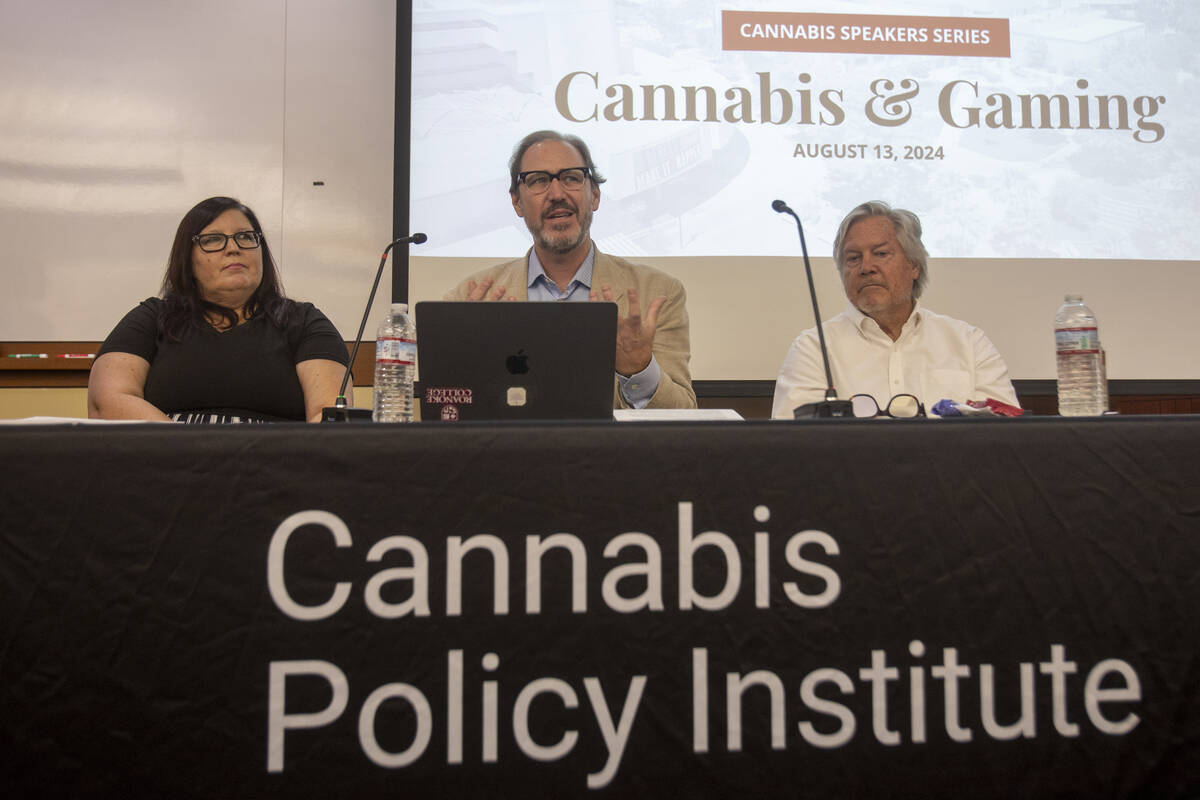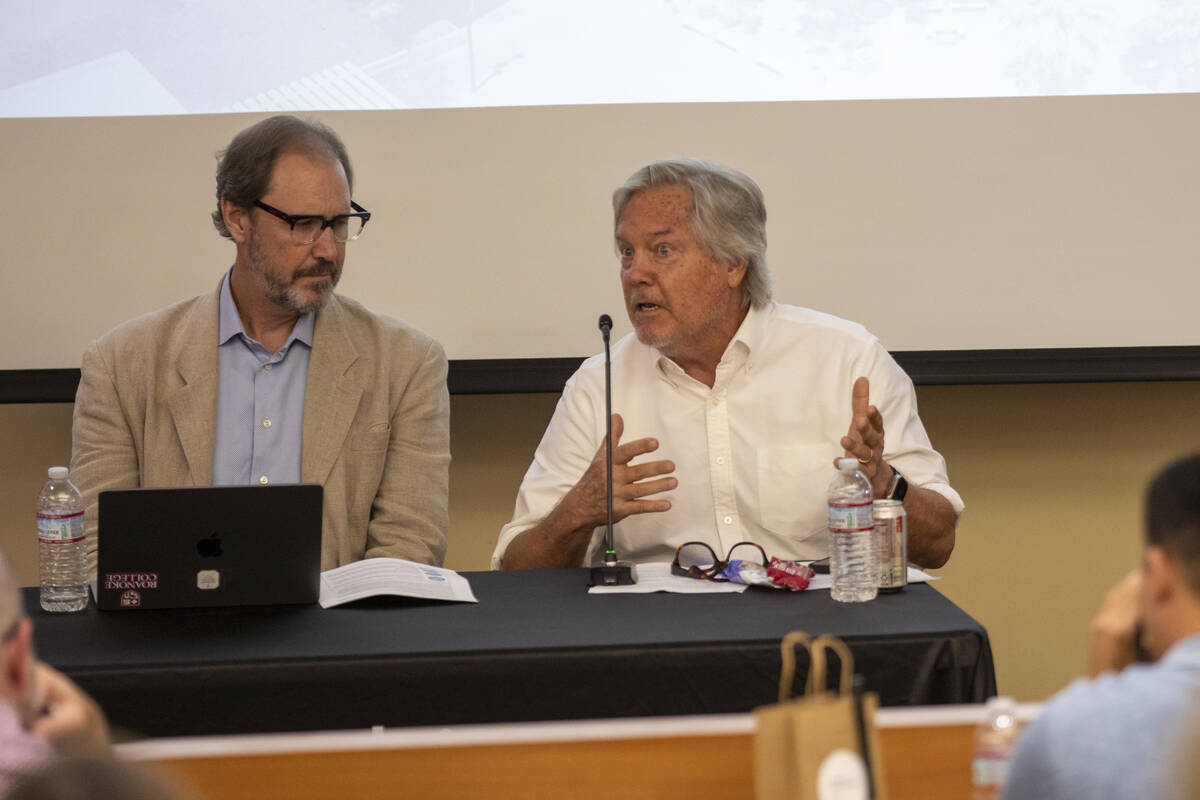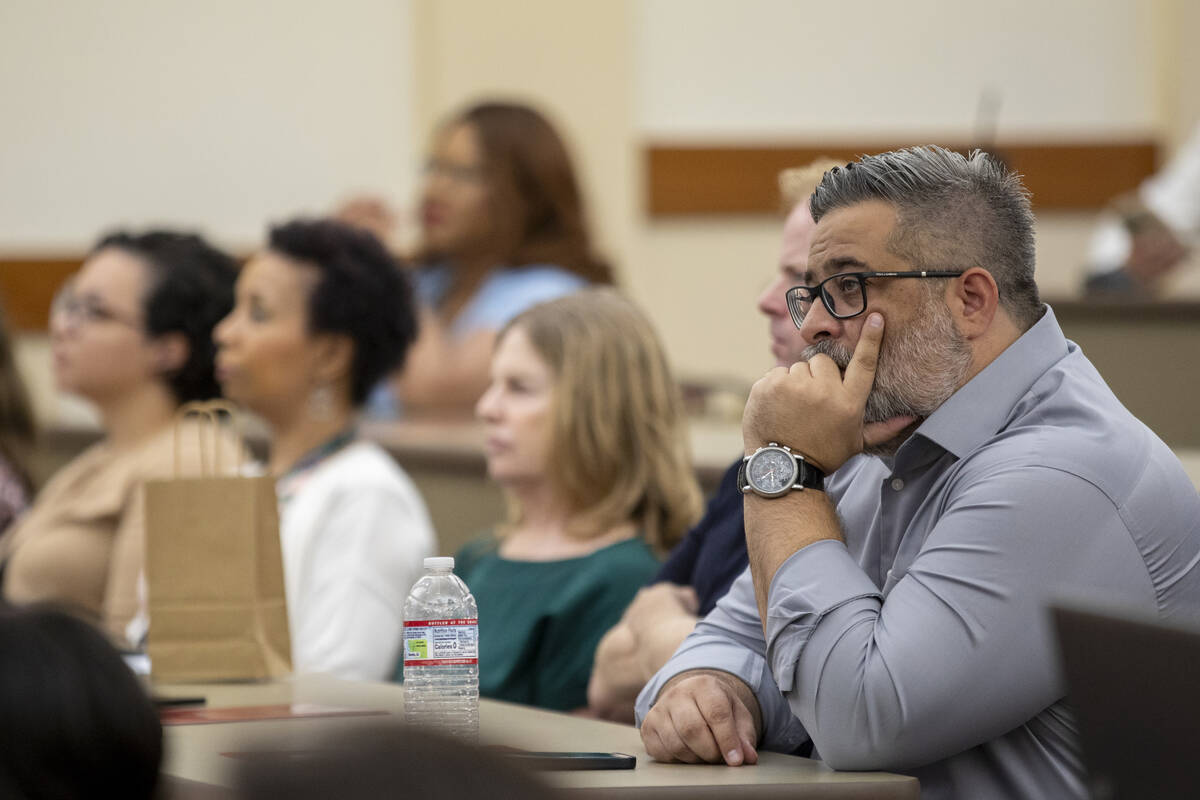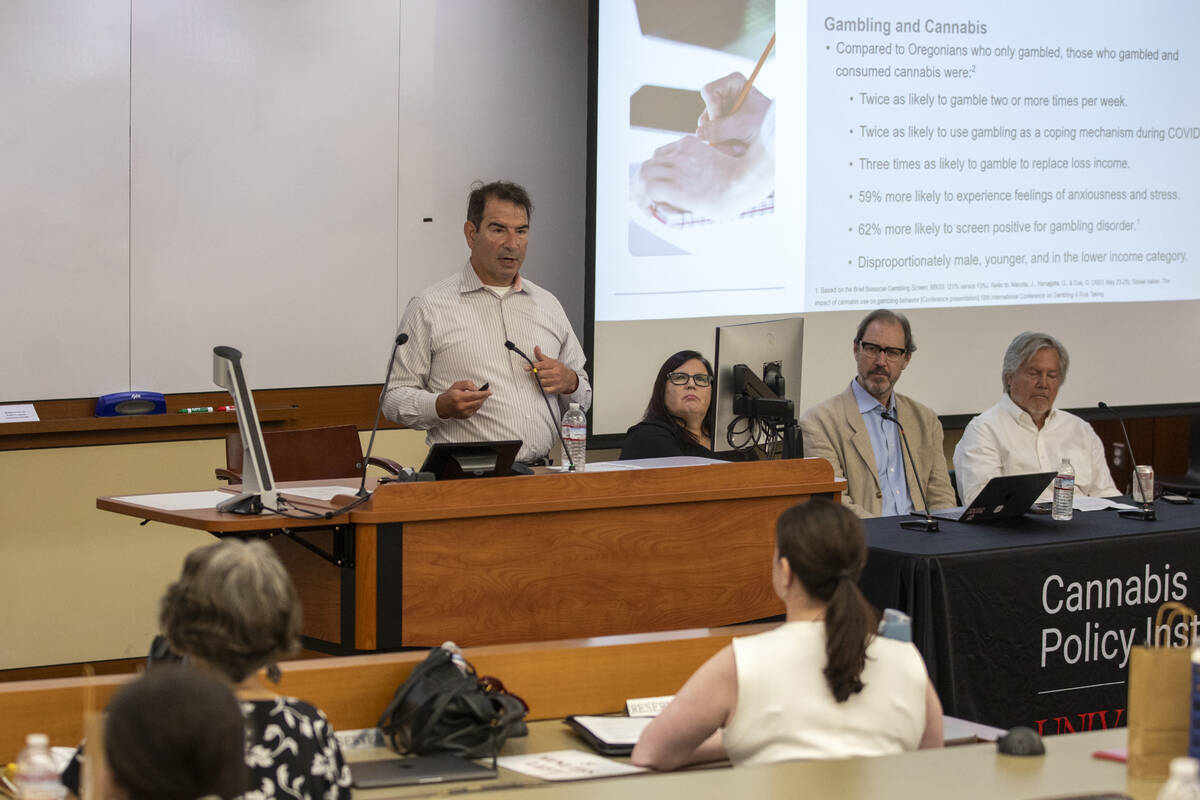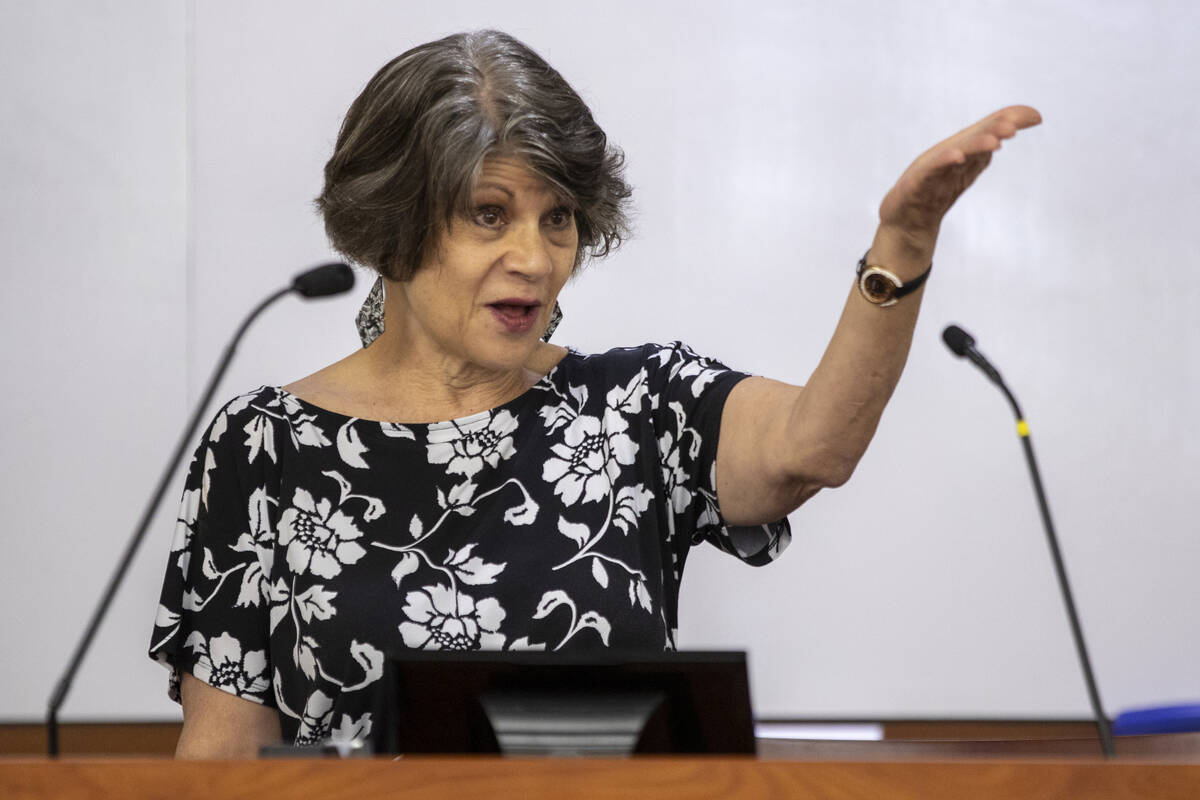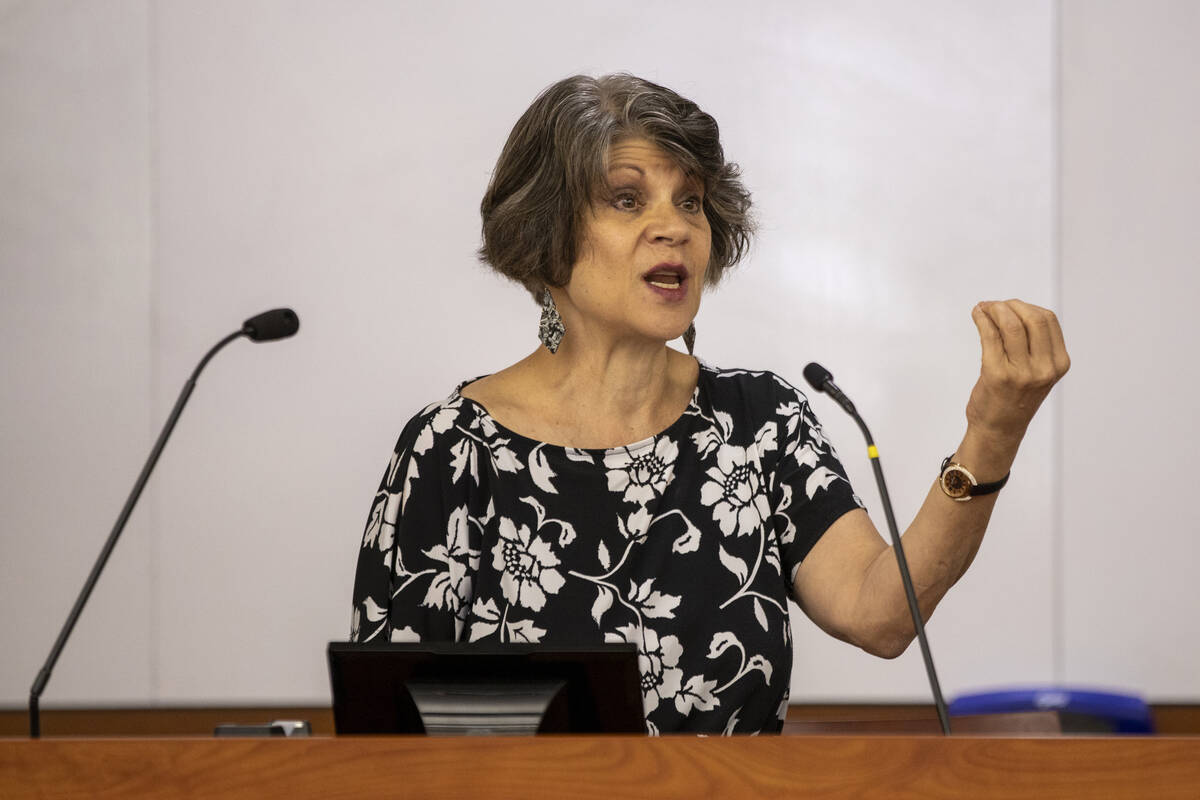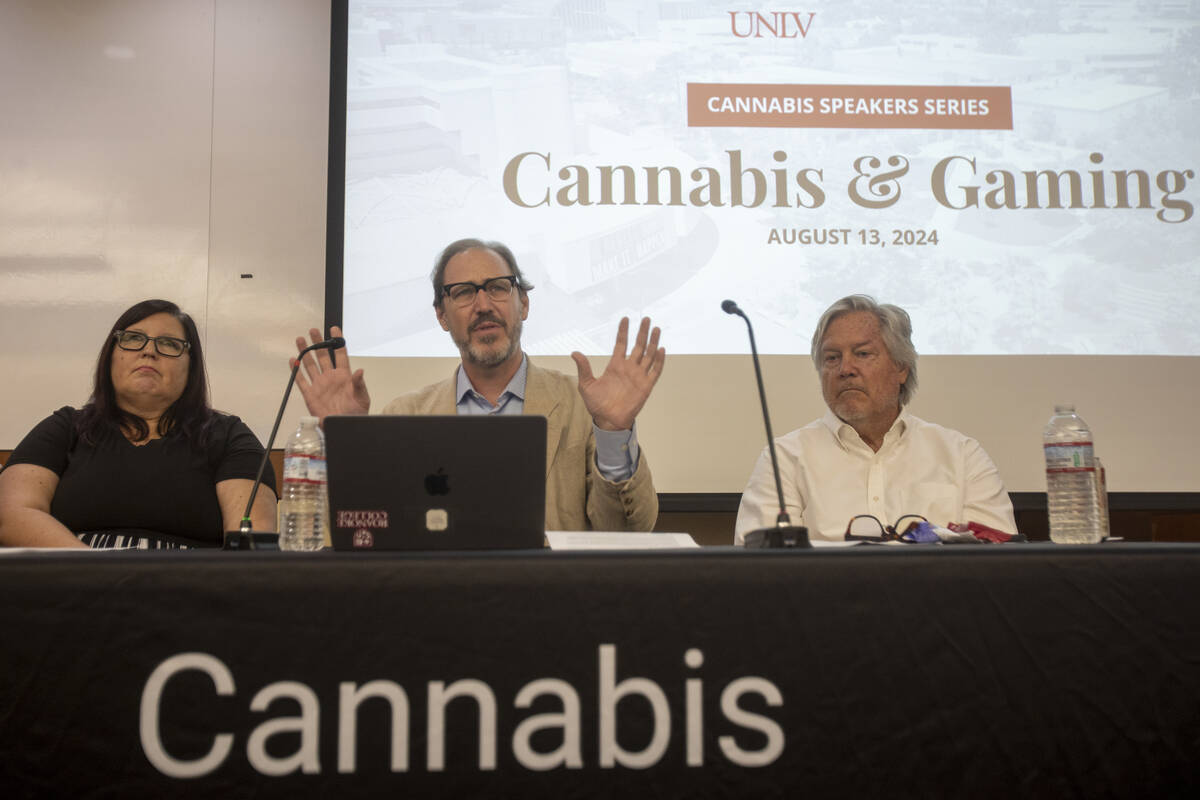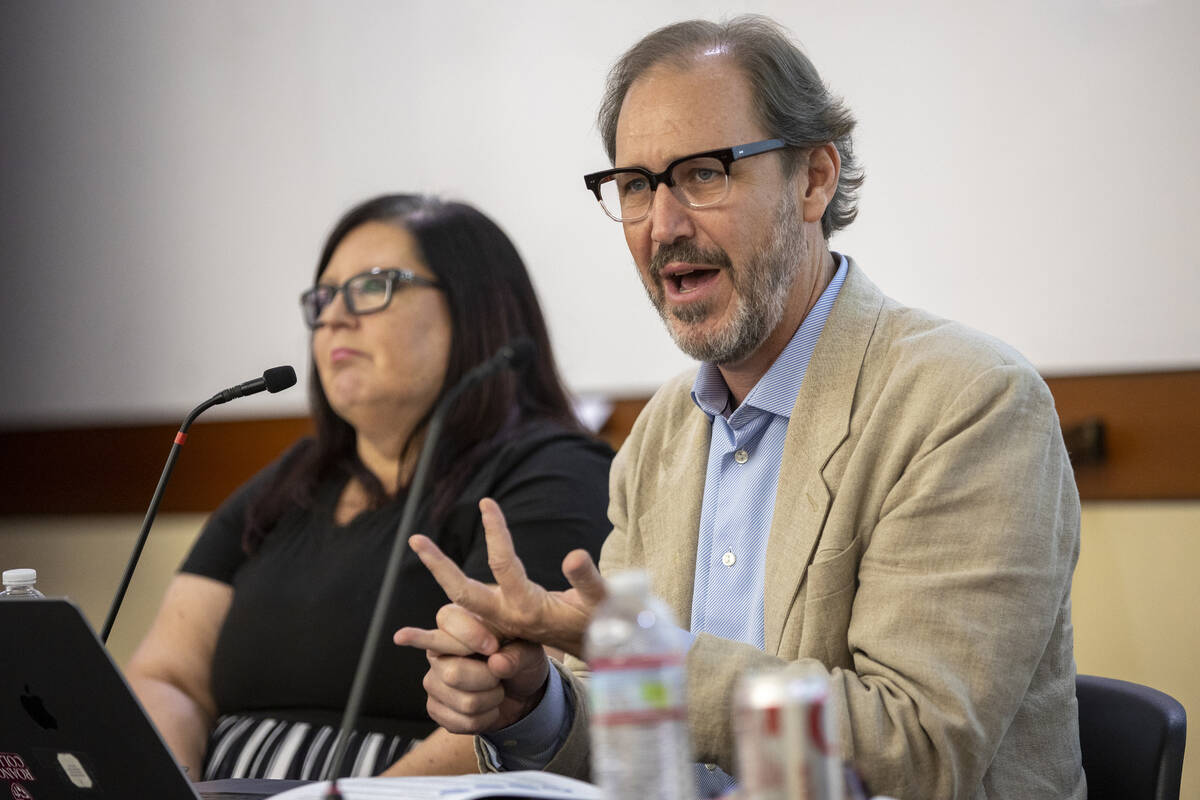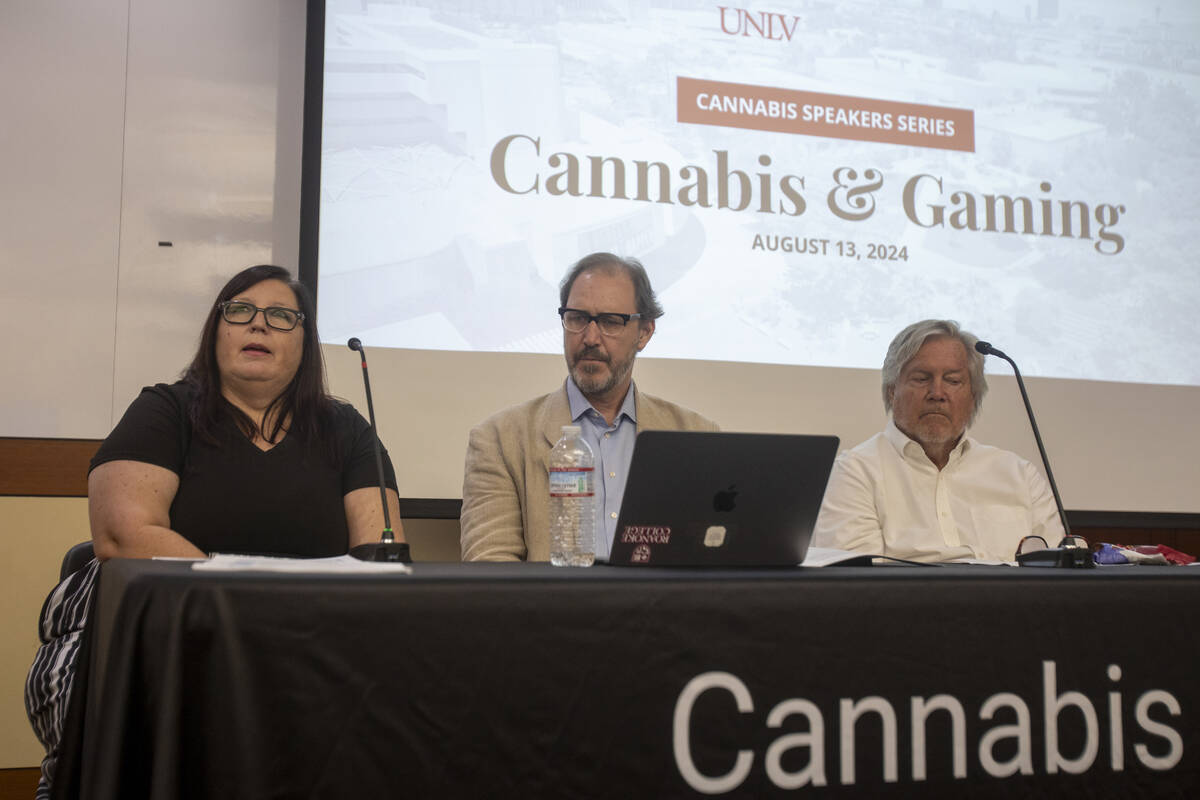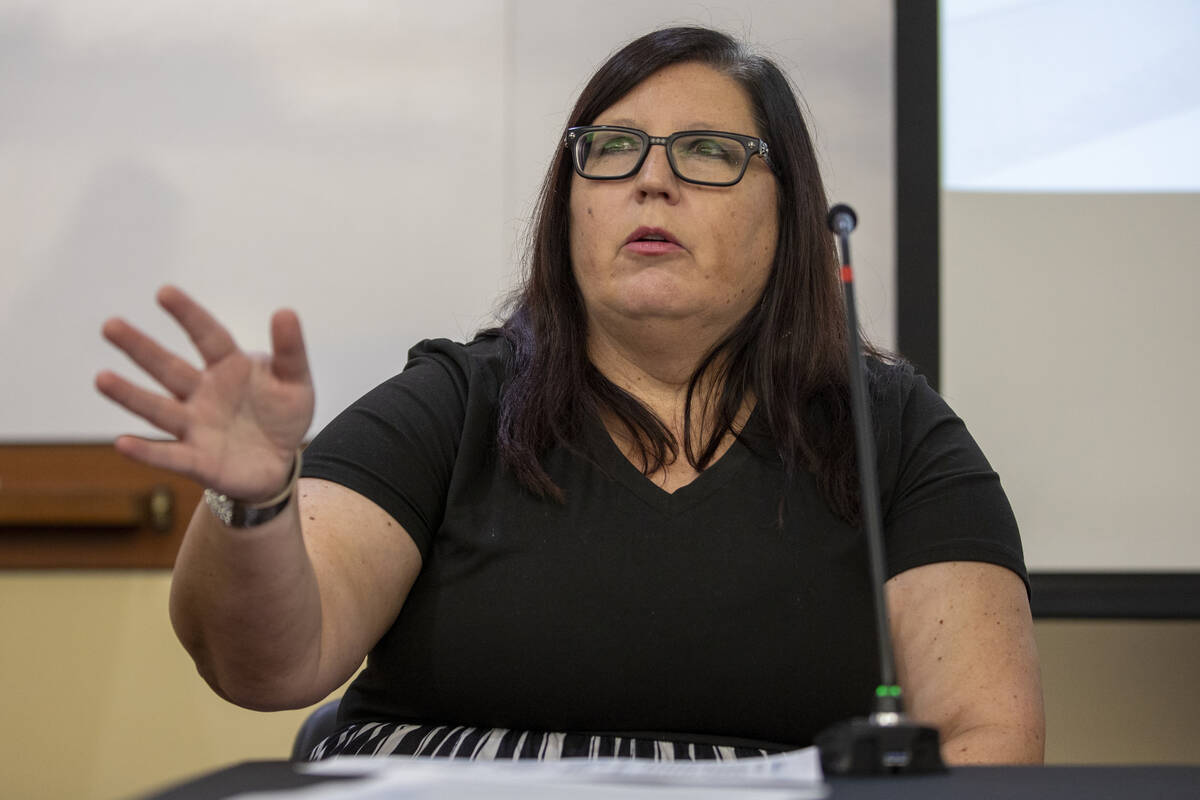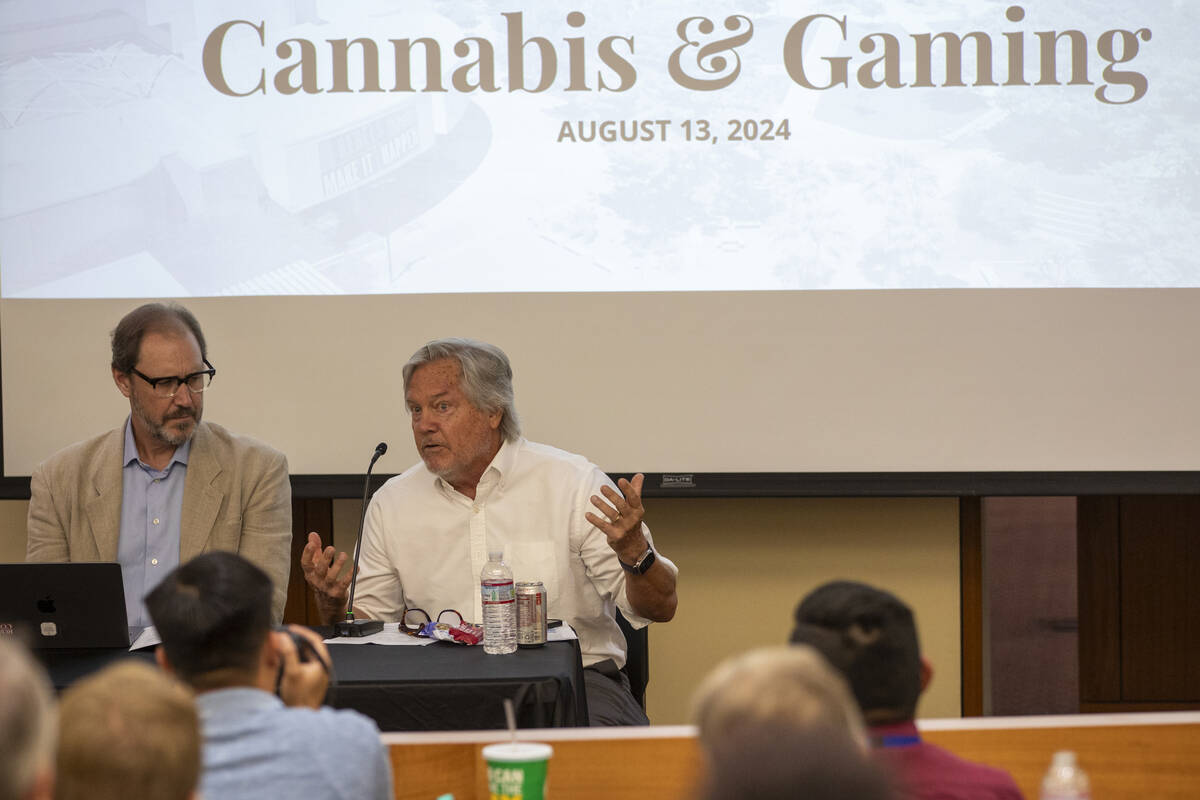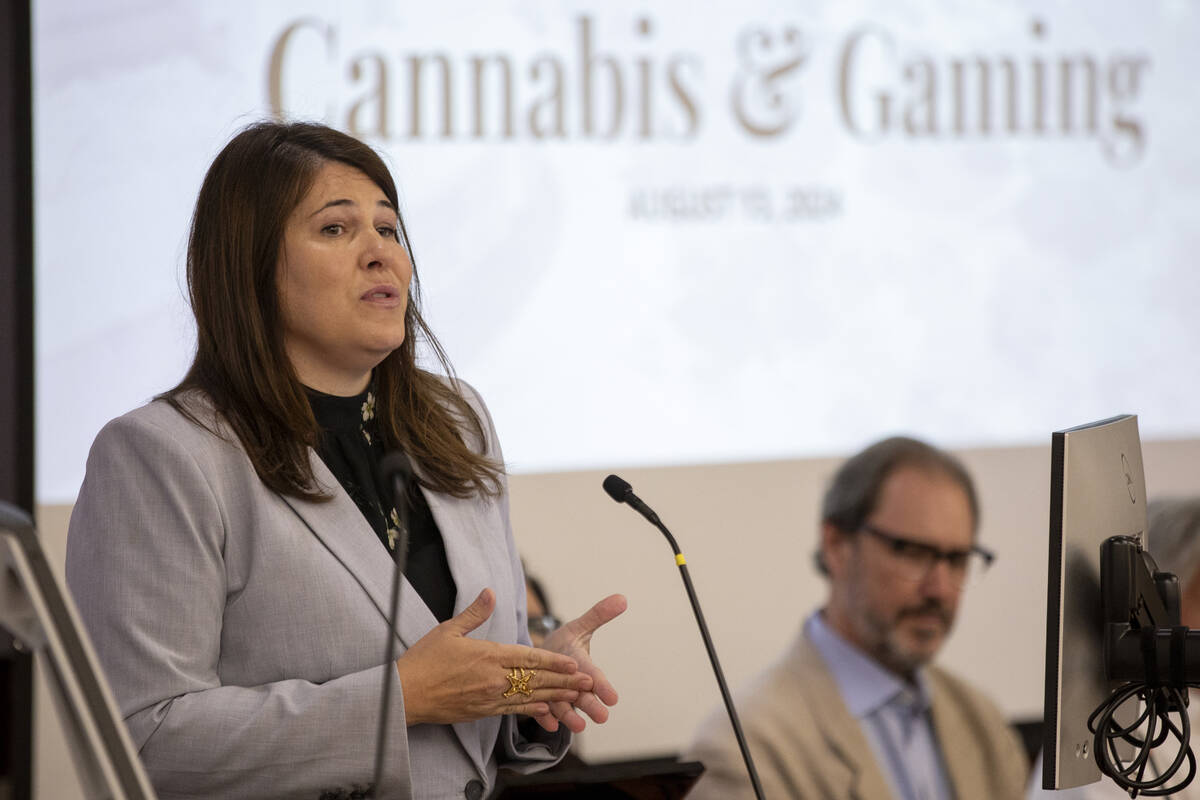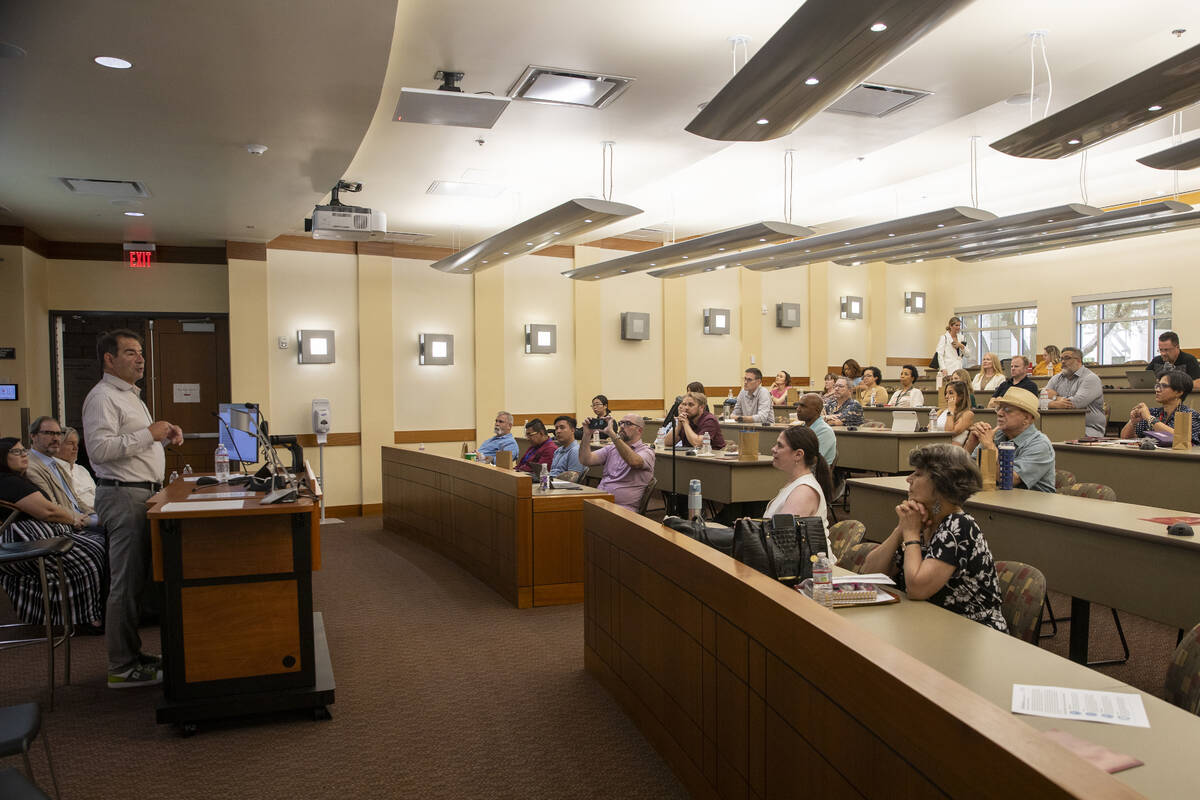Are casinos losing revenue by not allowing cannabis consumption?
Nevada casinos would make a titanic splash if they pushed to allow cannabis products to be consumed in their resorts.
But don’t count on that happening anytime soon.
The Nevada Gaming Control Board in 2018 issued a policy following multiple meetings of the Nevada Gaming Policy Committee that prevents gaming licensees from conducting any business with any entities involved with the cannabis industry.
Following that, gaming operators looking to expand into the legal cannabis business had to choose between the two. Most chose gaming.
But now that state and local officials have begun the process of allowing cannabis lounges and federal authorities are considering reclassifying marijuana from a Schedule 1 to a Schedule 3 drug, changes could be ahead.
The Drug Enforcement Administration says Schedule 1 drugs include marijuana, heroin, LSD, ecstasy and magic mushrooms. But Schedule 3 drugs include Tylenol with codeine, ketamine, anabolic steroids and testosterone.
Meanwhile, the first of about 40 cannabis consumption lounges opened in Las Vegas in February in the shadows of nearby casino resorts. Smoke and Mirrors, near Circus Circus and Resorts World Las Vegas, was the first to arrive.
Industry leaders for the cannabis and gaming industries and researchers recently discussed what could be on the horizon in a panel discussion at Boyd Law School at the University of Nevada, Las Vegas..
The bottom-line analysis: Whoever takes the first steps toward allowing joints to be smoked or cannabis edibles to be eaten or drunk at a hotel-casino could pioneer change in both industries — but they would be doing it at incredible financial risk unless current policies change.
Experts from UNLV’s Cannabis Policy Institute and International Gaming Institute presented their research on the topic, and three panelists discussed whether the change could happen and how it would.
“What it really comes down to is what the regulators tell you to do, you’re going to do,” said Jennifer Roberts, a Boyd gaming law professor and general counsel of Wynn Interactive, the online and mobile sports betting and casino gaming branch of Wynn Resorts Ltd. (who made it clear that she was speaking as a law professor and not on behalf of Wynn.) “And regulators have long told us in the gaming world that cannabis and gaming should not mix. And we followed that directive. The position has been, since they issued a first memo back in 2014 that it’s a violation of federal law to allow for the use and consumption and distribution of cannabis. And they cannot sanction a violation of federal law.”
Missed opportunities
Robert Hoban, a global cannabis leader who has worked with more than 30 governments worldwide to develop laws, policies, and regulations for the commercialization of cannabis, noted that several laws have been added to precisely formulate a division between gaming and cannabis and represent a missed opportunity for business.
“No deliveries (of cannabis) to the Strip. This is something that’s tremendously inconvenient for people traveling to Las Vegas, the consumers,” he said. “A missed business opportunity, but it maintains a separation.
“You’ve got gaming licensees that can’t invest, nor can they engage in cannabis businesses. That keeps the finances separate. And then last, of course, the location of a cannabis-related business in relation to a casino.”
While gaming regulators argue that cannabis availability within a resort could diminish the integrity of casino gambling, they have no response to the argument of alcohol consumption doing the same thing.
“We like to pretend that that issue doesn’t exist,” Hoban said. “It’s probably no worse, maybe even better, than alcohol consumption, which is rampant, of course. But at the same time, I think that to keep those things separate is important, at least from maintaining the integrity of the gaming establishment.”
Keeping the feds out
Clark County Commission Chairman Tick Segerblom, an advocate for the cannabis industry, who introduced legislation as a state senator that eventually led to statewide votes approving medical marijuana and recreational marijuana use, said legalization was borne out of keeping usage under state control instead of the federal government — a similar strategy the state used when legalizing gambling.
“I think people are pragmatic,” he said. “The reality is we created a structure so the federal government wouldn’t come in and actually see what we’re doing. And part of that was the cash limitations. And because marijuana required cash too, I think people just freaked out and said we don’t want anybody else bringing cash into the casinos or bringing marijuana cash into the casinos because we don’t want the feds to see what we’re doing.”
Roberts explained that, too, was part of the origination of Nevada’s modern gaming model.
“The reason why we have legalized gaming in the current regulatory structure, which is by law that it’s based on strict regulation of gaming, is because we didn’t want the feds to come in and intervene,” she said. “Back when Grant Sawyer was governor and created a modern gaming regulatory system, it was done under the threat of federal FBI raids into our casinos and shutting down the industry.
“And so on that basis, we built our modern gaming regulatory structure,” Roberts said. “So I think it’s interesting to kind of hear that that’s where cannabis is and they don’t want that federal intervention. And because casinos are considered financial institutions under federal law, they have to report to the federal government on any illegal activities and their structures for reporting on cash transactions at a casino. So it is a delicate balance and I just want to highlight that that federal intervention is real on the gaming side as well.”
So will the two industries with similar roots ever come together? Panelists said the best strategy may be for Nevada to join other states with legalized recreational marijuana to decriminalize or “de-schedule” it instead of rescheduling the classification of the drug.
Segerblom believes that whether cannabis would ever be legally integrated into casinos will be up to them, but he thinks the blending is inevitable.
“The history of Nevada and the country is that if they want something, they make it happen,” Segerblom said.
“Why not start with a lounge where you can bring your own in and smoke it right there in the casino? Start with something like that, so just getting people ready for the inevitable,” he said. “The truth is most of the business of casinos is not gaming anymore, it’s entertainment. It’s such a perfect integration to entertainment that it’s just inevitable, but the more people start calling Planet 13 (a marijuana retail seller in Las Vegas), the sooner it’s gonna be going into the hotels, because they don’t obviously have money to get into the hotels.”
What consumers want
Hoban said marijuana consumers could also have a role in what happens next.
“What do consumers want? From a consumer standpoint, that’s a work in progress right now,” he said. “Because traditional cannabis consumers are stuck in their ways, right? They’re perfectly fine with standing in the alley between the Cosmo and the (Jockey) Club and smoking a joint before they walk in. That doesn’t affront anybody. If you provided a venue within the casinos, would that keep people in the casinos and accordingly make the casino more money?”
Hoban suggests gaming licensees experimenting with dispensing cannabis as a starting point for integration of business.
“I think that some of the public policy solutions have to look to begin at cross-ownership in some form or fashion,” Hoban said. “Because if, in fact, Nevada’s gaming law is the gold standard, which there’s no reason to believe it isn’t, and the cannabis dispensation regulatory model is modeled thereafter, then why not allow those that exist within this gold standard framework to also operate, in part, dispensaries in the Strip?”
Contact Richard N. Velotta at rvelotta@reviewjournal.com or 702-477-3893. Follow @RickVelotta on X.



